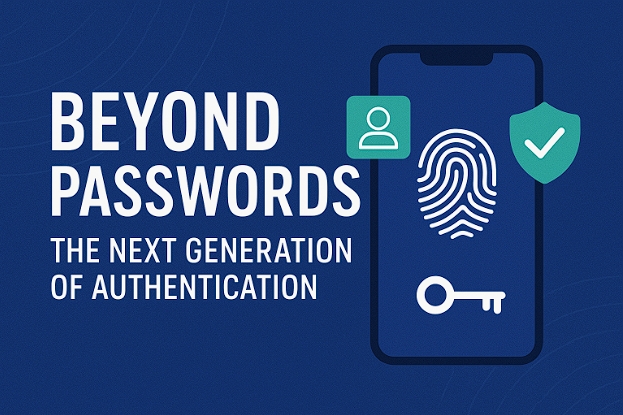
For decades, passwords have been the default method of securing accounts and systems. Yet, in today’s digital landscape, they are increasingly ineffective. Password reuse, weak credentials, and phishing attacks have made traditional login methods a prime target for cybercriminals. In fact, compromised passwords remain one of the leading causes of data breaches worldwide.
Businesses need to look beyond the password to secure critical systems, protect customer data, and maintain trust. Emerging technologies like biometrics, passkeys, and advanced authentication models are paving the way for a safer future.
Biometric authentication relies on unique personal characteristics—such as fingerprints, facial recognition, or even voice patterns—to verify identity. Since these traits are nearly impossible to replicate, biometrics provide a strong layer of security that goes far beyond what a password can offer.
For businesses, biometrics can enhance both convenience and protection. Employees can log in faster without the burden of remembering complex credentials, while IT teams gain confidence in stronger access controls.
Passkeys are quickly becoming a leading contender for replacing passwords altogether. Built on public key cryptography, passkeys allow users to log in securely without ever typing a password. Instead, authentication happens through devices like smartphones or hardware tokens, reducing the risk of phishing and credential theft.
Tech giants like Apple, Google, and Microsoft are already rolling out passkey support, signaling that businesses should start preparing for widespread adoption.
While MFA is not new, it continues to evolve as businesses strengthen defenses. Instead of relying solely on text messages or email codes, modern MFA incorporates hardware tokens, biometric checks, or push notifications to verify user identity. These layers make it significantly harder for attackers to compromise accounts, even if one factor is exposed.
Looking ahead, identity verification is expected to become adaptive and context-aware. This means authentication systems will analyze user behavior, device type, and location patterns to detect anomalies and block suspicious access attempts in real time.
Transitioning beyond passwords is not just a matter of convenience—it’s essential for long-term cybersecurity. Businesses can start by:
Passwords served their purpose for many years, but the next generation of authentication is already here. By embracing biometrics, passkeys, and evolving MFA strategies, businesses can reduce risk, improve user experience, and stay ahead of cyber threats. Partnering with an IT services provider like Rion Technologies ensures a smooth transition to modern identity security solutions that protect both today’s operations and tomorrow’s growth.